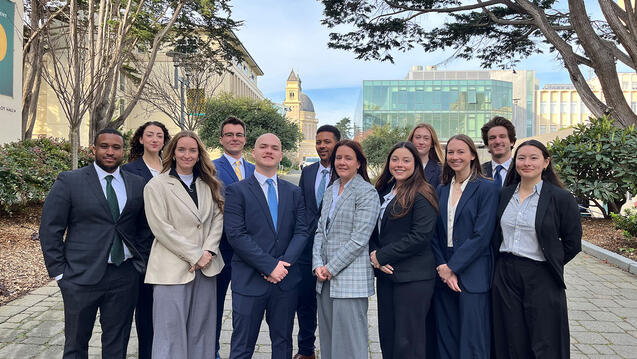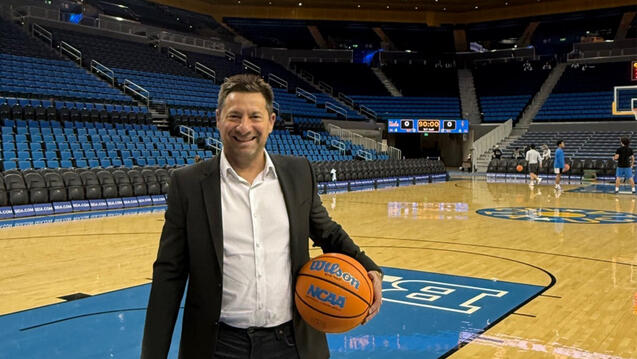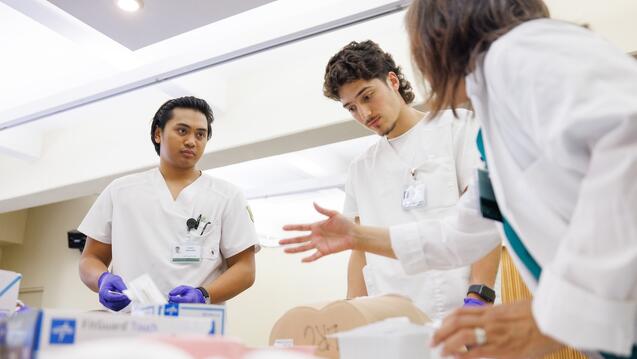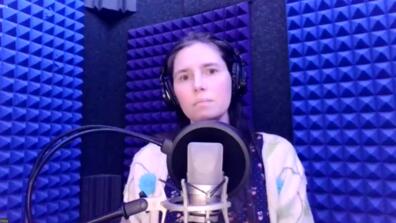
Exoneree Amanda Knox Delivers Annual Hamill Family Lecture
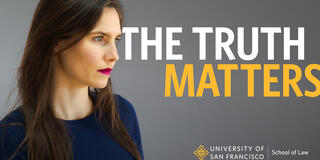
Amanda Knox, a journalist and author who spent four years in an Italian prison for a murder she didn’t commit, delivered USF Law’s annual Hamill Family Lecture on March 23.
Knox discussed the way botched investigations, confirmation bias and media narratives all played into her wrongful conviction in the 2007 murder of her roommate, Meredith Kercher. It wasn’t until 2015 that the Italian Supreme Court exonerated Knox. But Knox, who today works with organizations like the Innocence Project to free others who have been wrongfully convicted, nonetheless noted that her case is just one example.
“All the same mechanisms that happened to me happened to tons of people before me and unfortunately are still happening to tons of people after me, and if I can build a bridge between them and the people who don’t know or wouldn’t think to care before [about wrongful convictions], that is something I feel is worthwhile,” Knox said. “That is a way I can rebuild my identity on my own terms, not in constant reaction to this crime that I had nothing to do with.”

2021 Hamill Family Lecture
featuring Amanda Knox.
Knox was introduced by Professor Richard Leo, the Hamill Family Chair in Law and Social Psychology, and an expert on false confessions and wrongful convictions. “Amanda Knox has done a lot to educate the world on wrongful conviction — and on gender in wrongful conviction — to try to make the world a better place and to help reform the criminal justice system.” Leo said.
Knox’s story bears additional similarities to those of other wrongfully convicted individuals: abusive police interrogation methods, lack of legal representation during initial interrogation, and a coerced false confession, which she quickly recanted.
“This is the work that Professor Leo has dedicated himself to — this breaking of a person — because there is no more powerful evidence in a court than a false confession by an innocent person, because no one thinks that innocent people would ever say anything that would incriminate themselves.”
The Hamill Family Lecture is made possible thanks to a generous gift from USF School of Law alumnus Stephen Hamill ’78, and his wife, Janice.
